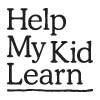What to do with this activity?
A calculator is an important maths tool. In Irish primary schools, calculators are introduced from around the age of 9 (4th class). By this age children have usually learned how to add, subtract, multiply and divide. They can work out sums on paper or have a go at mental calculations. They may also understand the meaning of decimal points. The calculator is not a substitute for these skills, but can be used along side them.
If your child is learning to use a calculator in school, have some learning fun with it at home.
1) Take turns and see who can work out a sum quicker - one person with and one without a calculator.
2) With a bigger sum - for example, 390 X 2 - estimate in your head approximately what the answer should be. Do this by rounding off the numbers to make it easier to estimate - 390 becomes 400. See how quickly you can estimate and see how close you can get to the answer your calculator provides.
3) Enjoy these calculator games from Top Knotch Teaching, or this online game from Top Marks.
-
Why am I doing this?
Everyday activities, like shopping and taking journeys provide a great opportunity for your child to practise maths skills by recognising patterns, counting out amounts, working out the best value, weighing and understanding money or understanding timetables and estimating your time of arrival!
-
How can I do more?
Estimating is a very useful maths skill for everyday life – helping you decide if you have enough money to pay for a number of items or enough paint to paint a room. Encourage your child to estimate, for example, how many potatoes you will need for dinner or how much money to buy the shopping.
Rate this activity
![]()
![]()
![]()
![]()
![]()
Based on 2 reviews
How would you rate it?
1 = Poor, 5 = Great.



